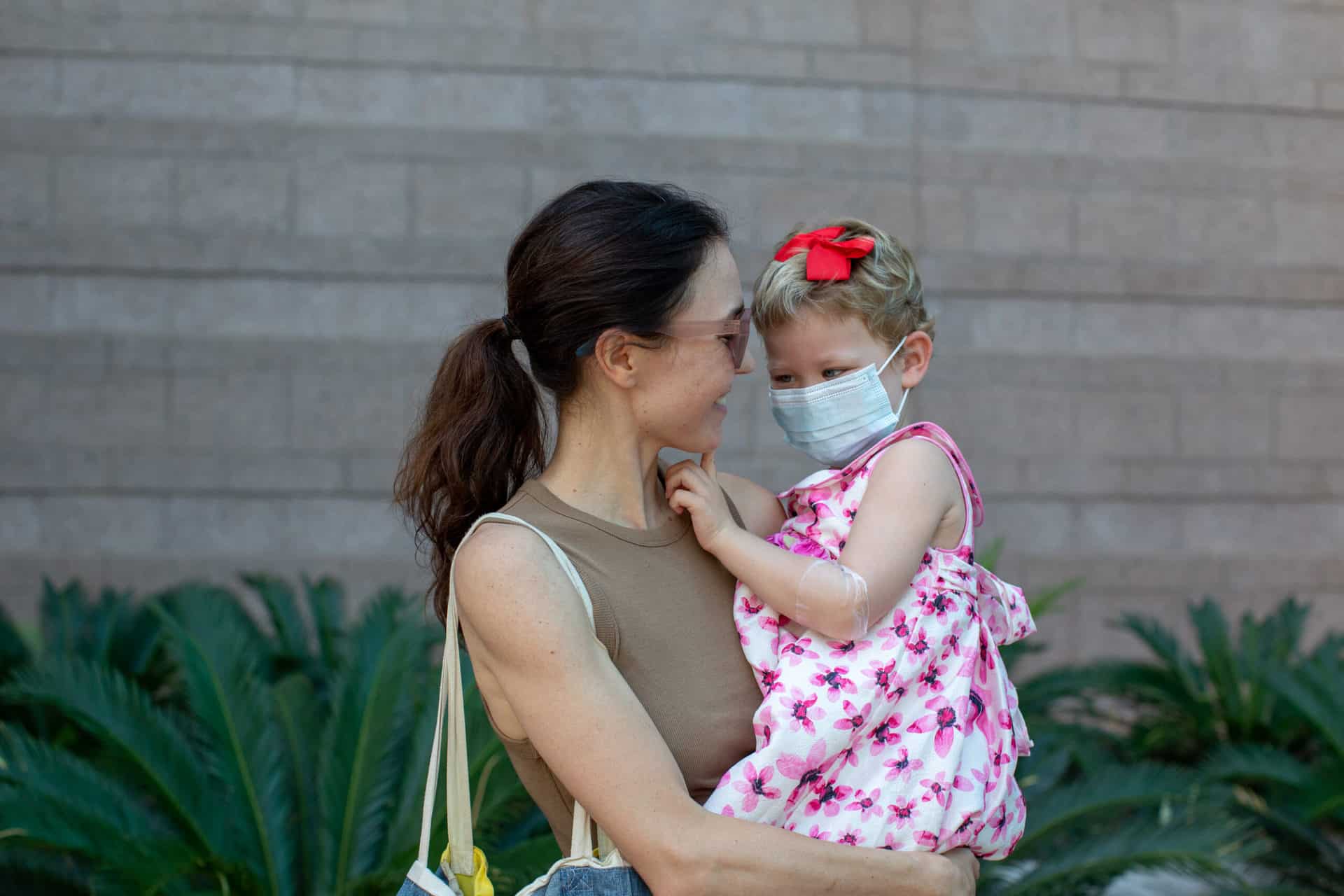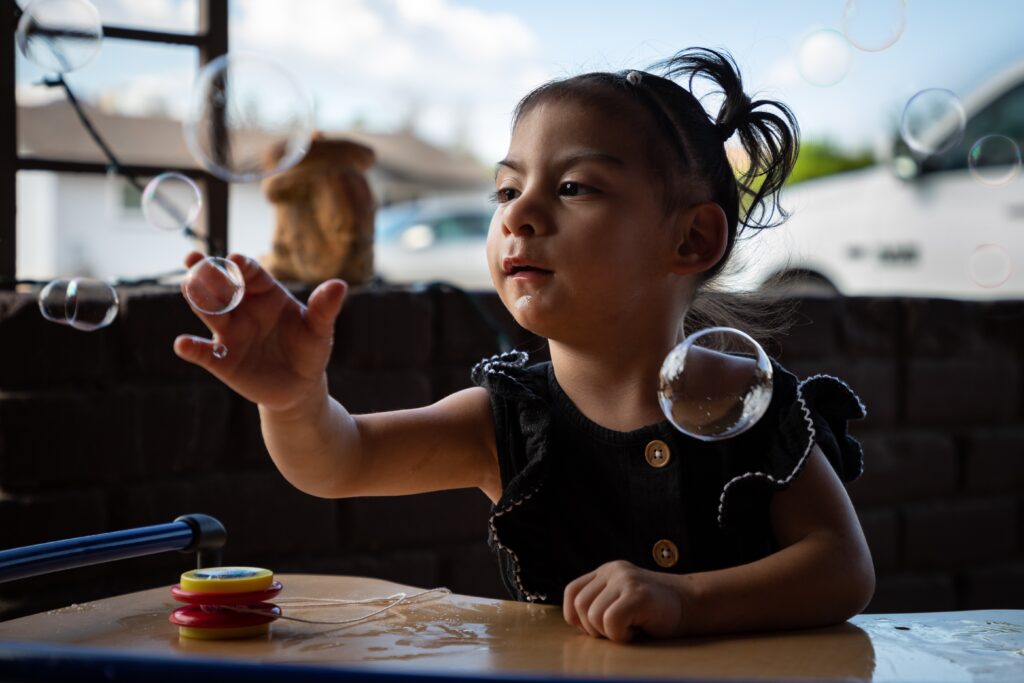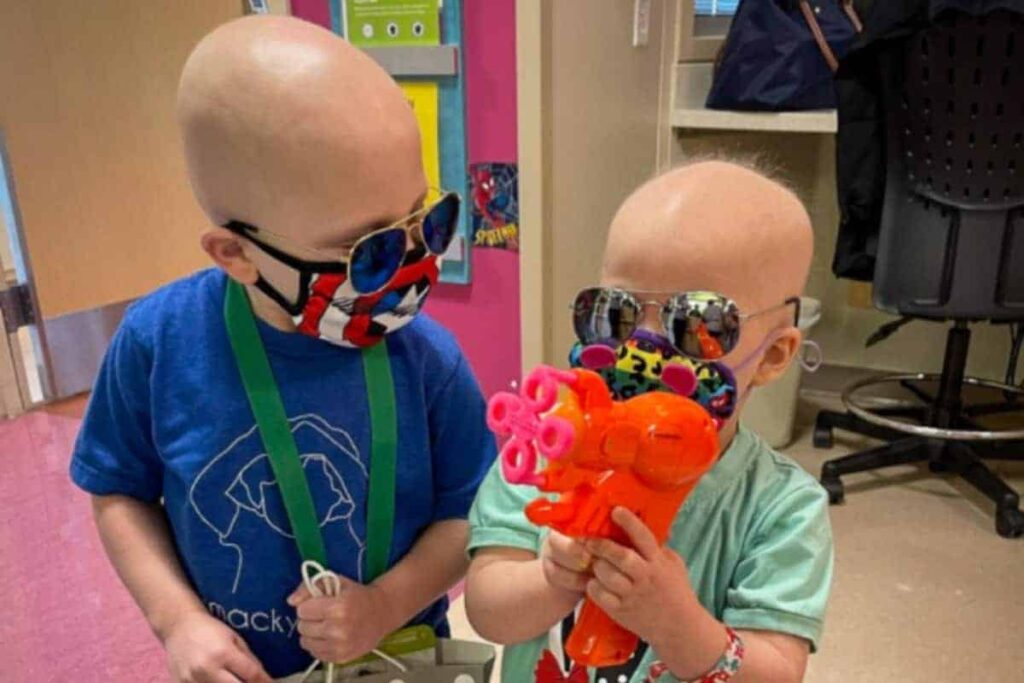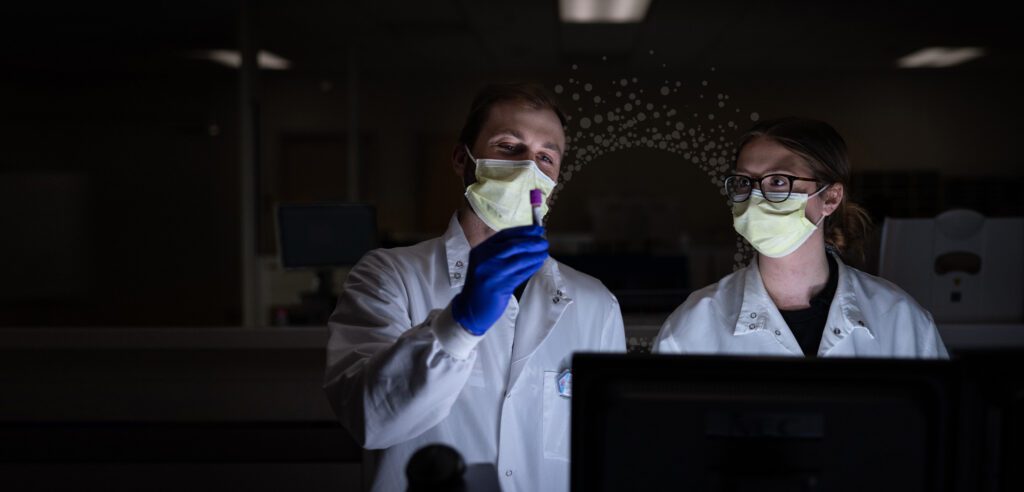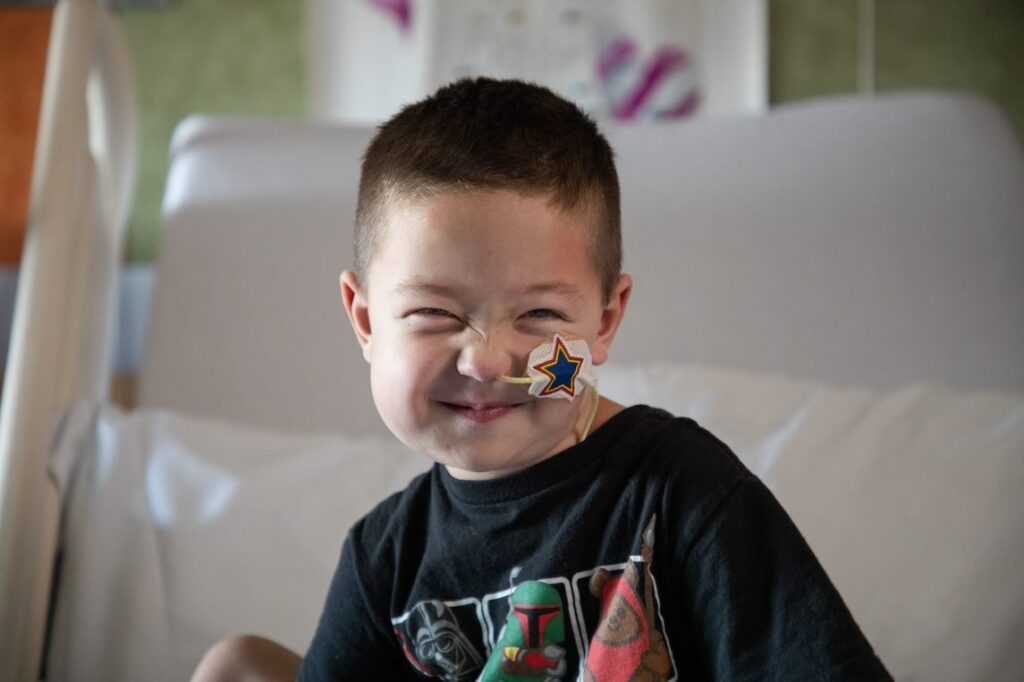Cooper was 3 when she was diagnosed with acute lymphocytic leukemia (ALL) in April 2020. It was 5:30 p.m. and Cooper’s pediatrician told the family Phoenix Children’s was expecting them that night so treatment could begin as soon as possible.
ALL is a fast-growing type of cancer that affects the blood cells. It’s most often diagnosed in children between the ages of 2 and 5, although it remains relatively rare. Five-year survivor rates for ALL is about 90%, but treatment is arduous and typically involves weekly chemotherapy infusions for a period of two to three years.
Super Cooper (as her parents call her) is accustomed to coming to Phoenix Children’s since starting treatment a year and a half ago. It’s just part of her life at this point—as normal to her as jumping on her trampoline at home or ice cream for dessert. Visits generally last between two to six hours, from start to finish.
The words “cancer” and “chemotherapy” mean nothing to Cooper. Her parents, McKenna and David, have intentionally stricken them from their vocabulary, believing that a large part of healing is believing. Instead, Cooper believes she comes to the hospital every week to get infused with superpowers, such as strength, speed and love.
Here’s a peek inside what Cooper’s visits look like these days.
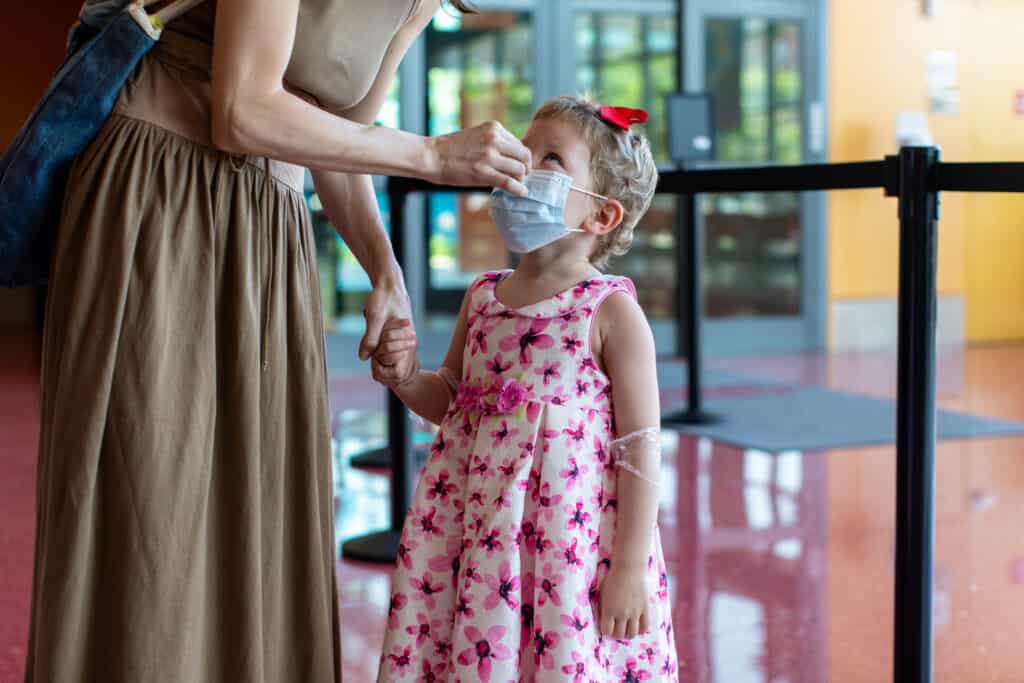
Cooper, and her mom, McKenna, arrive at Phoenix Children's for the maintenance phase of cancer treatment. At this stage, there are no detectable cancerous cells in Cooper’s body. However, there’s a chance “hidden” cancerous cells may still be present.

They sign in at the front desk and get a visitor’s pass.
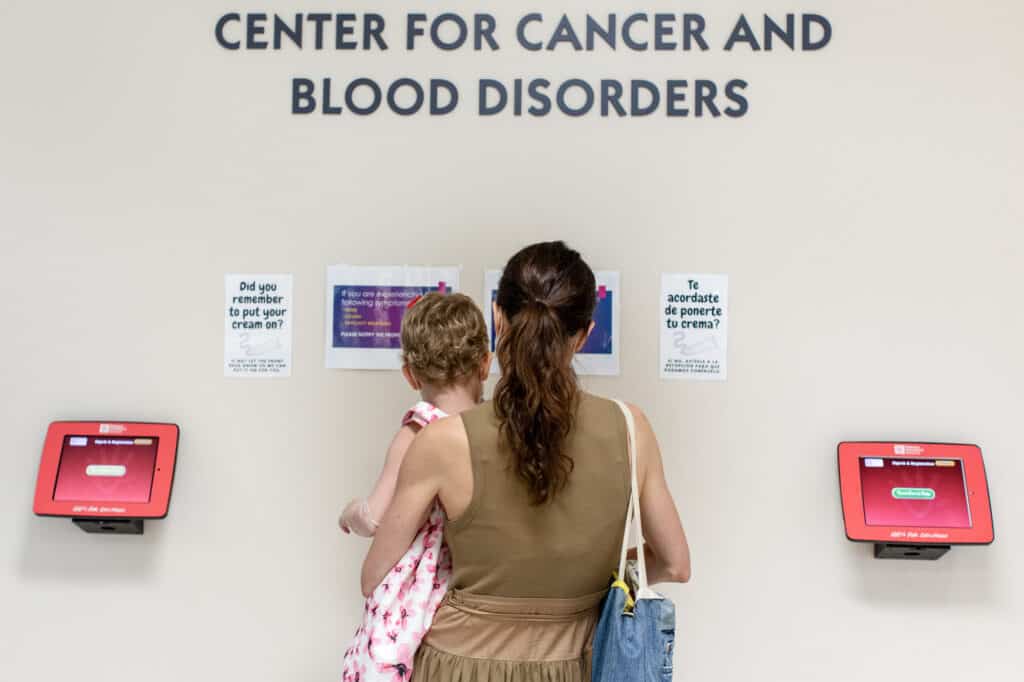
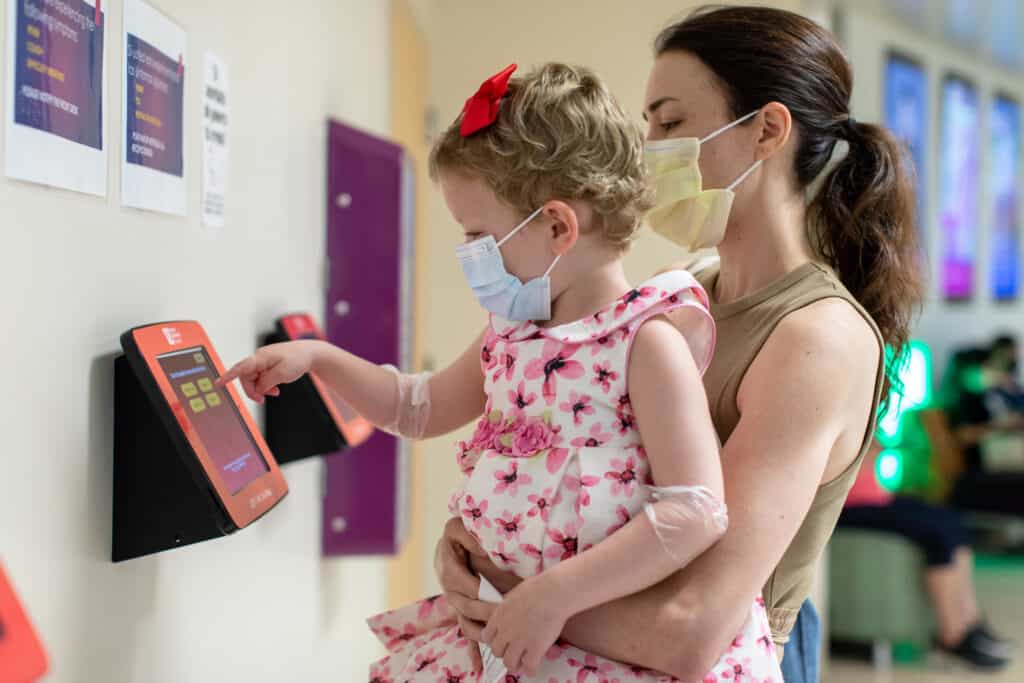
McKenna and Cooper electronically check in for their appointment via the kiosk, a system that speeds up the registration process and prevents long lines from forming.
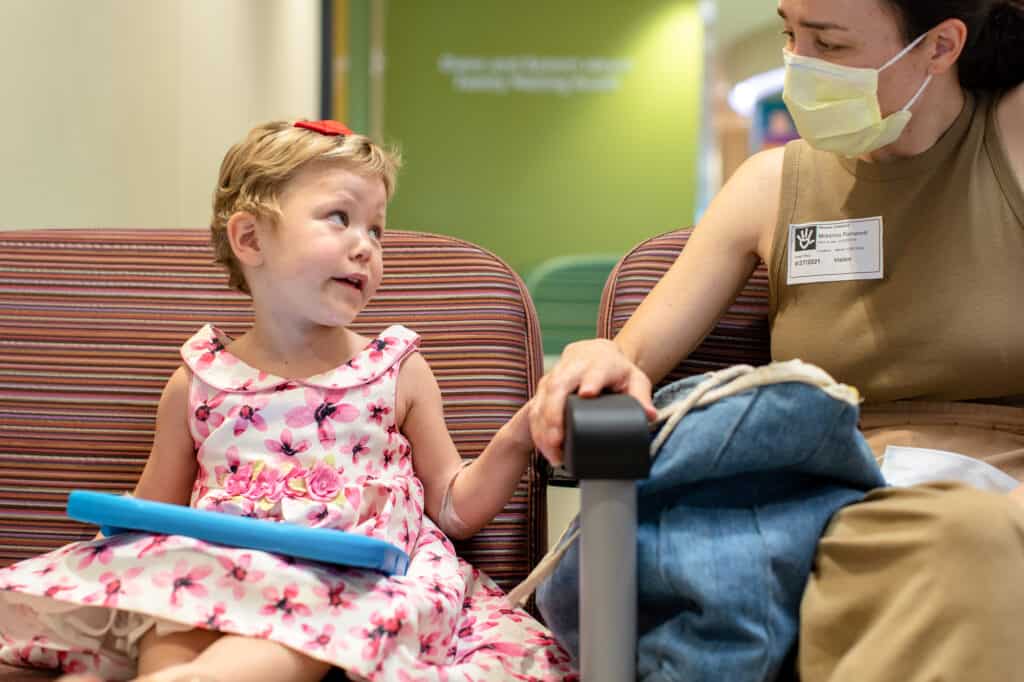
Cooper plays games on her iPad and chats with her mom while they wait for Cooper’s name to be called. McKenna creates positive associations for Cooper at the hospital—she packs snacks and gives Cooper ample time on her iPad—treats Cooper normally doesn’t have access to at home. “I try to make it fun for her,” McKenna says.
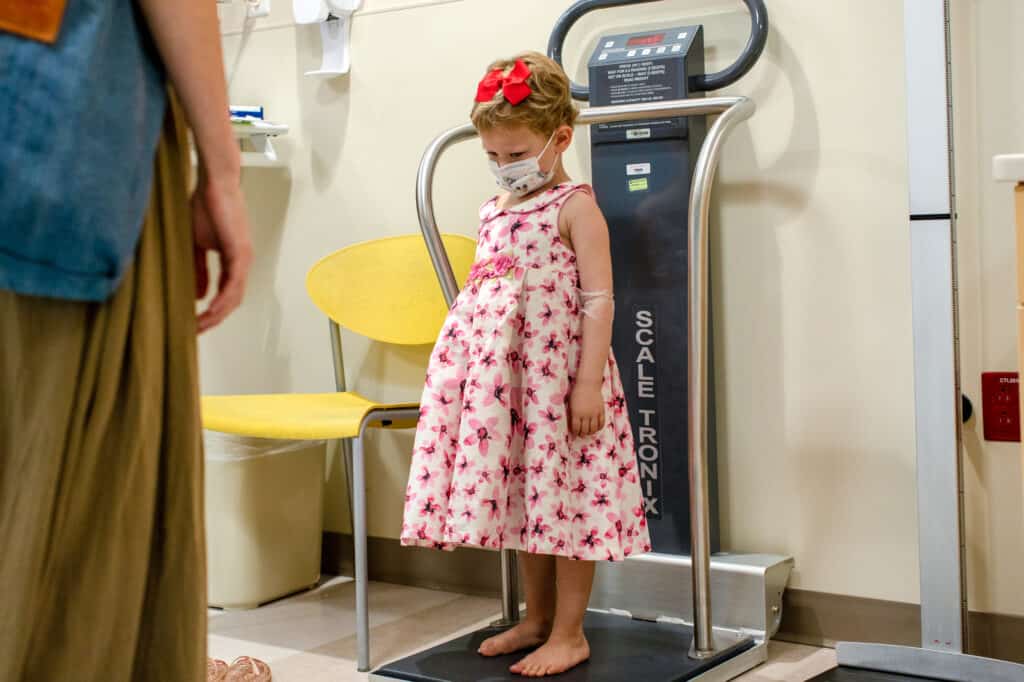
Cooper stands on a scale for her weekly weigh-in, as chemotherapy is tailored to each patient's weight and our patients grow quickly! It is also critical that our cancer patients aren't losing or gaining too much weight. Sometimes, a dietician gets involved to keep them on track.
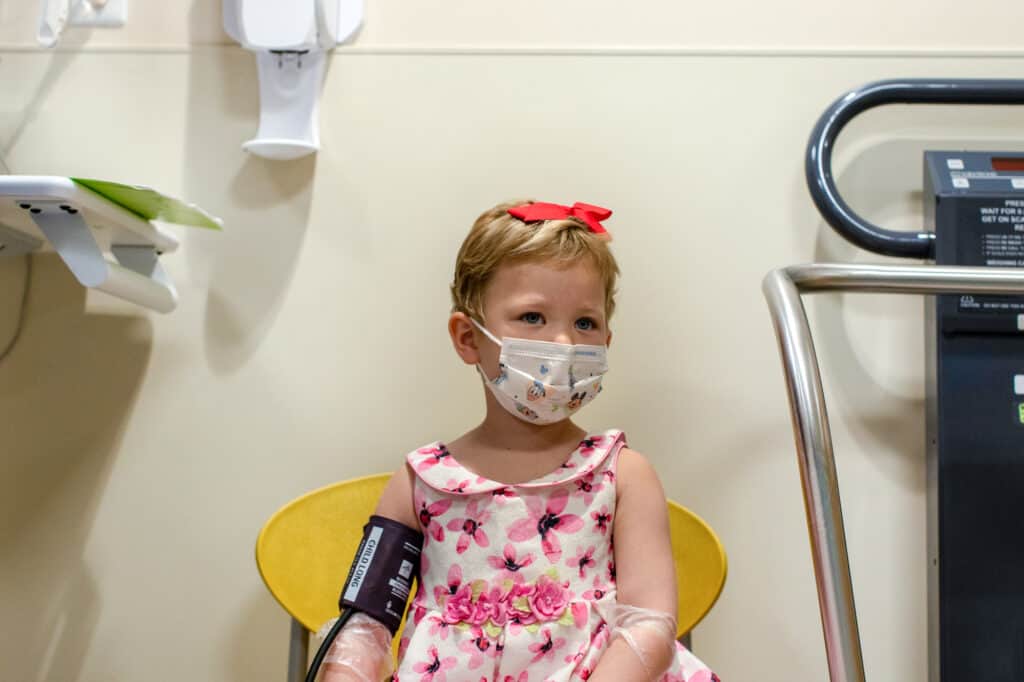
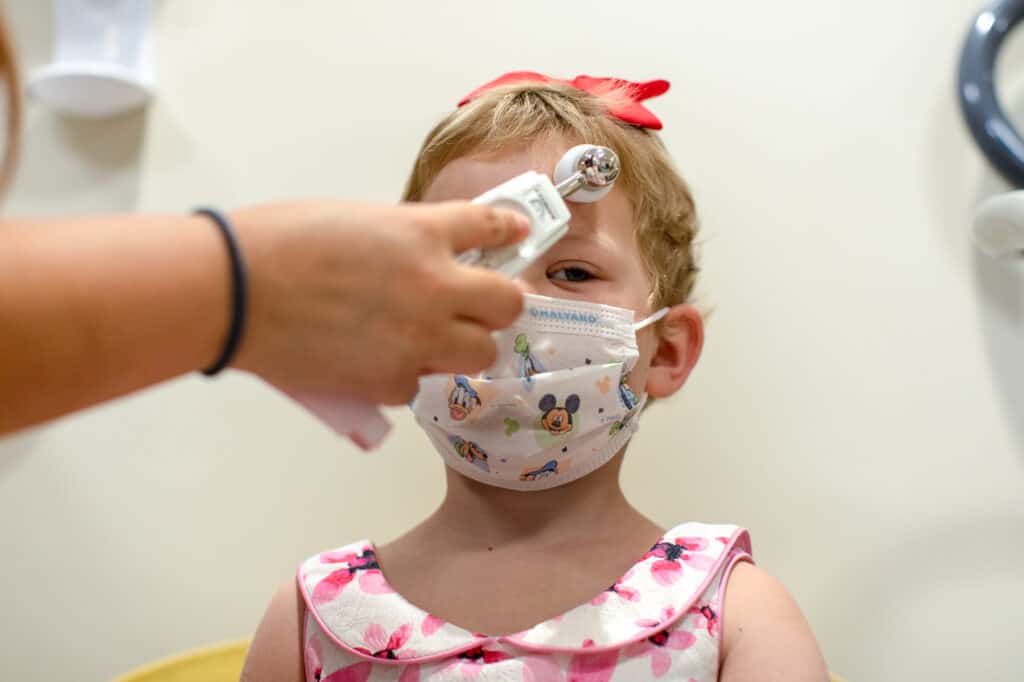
Cooper gets her blood pressure and temperature checked. High blood pressure is a common side effect of cancer treatment.
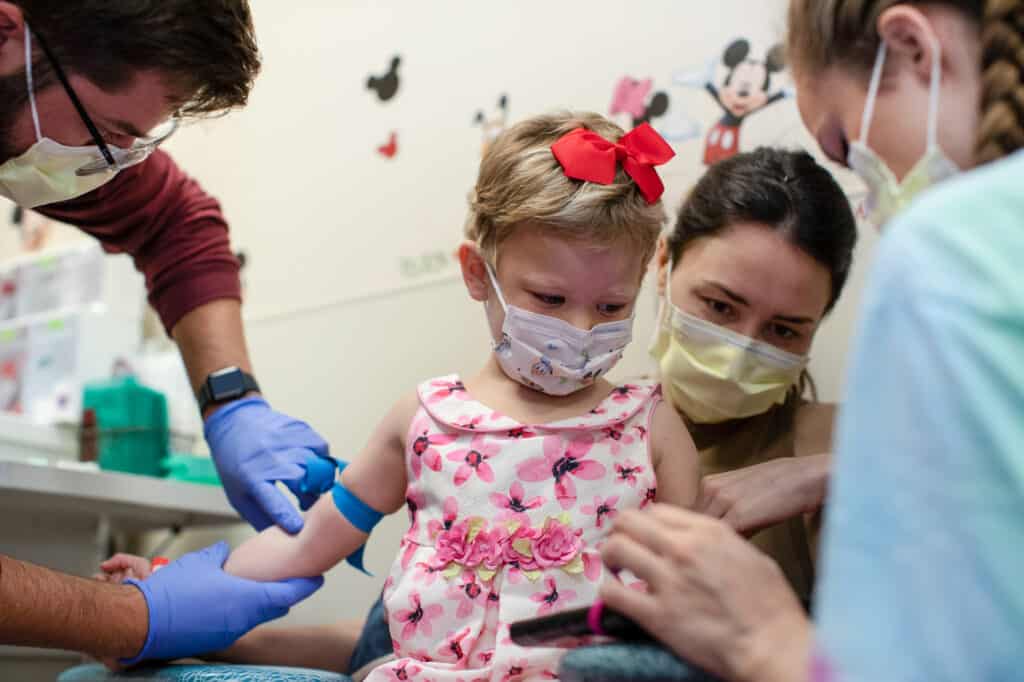
Haley, a child life specialist, distracts Cooper with her favorite videos while Will, a phlebotomist, prepares to draw Cooper’s blood. Regular bloodwork is important because the healthcare team needs to monitor Cooper’s white blood cell levels. If her counts are high, the chemo isn't killing enough of her leukemia cells. If her counts are low, she's at risk for infection.
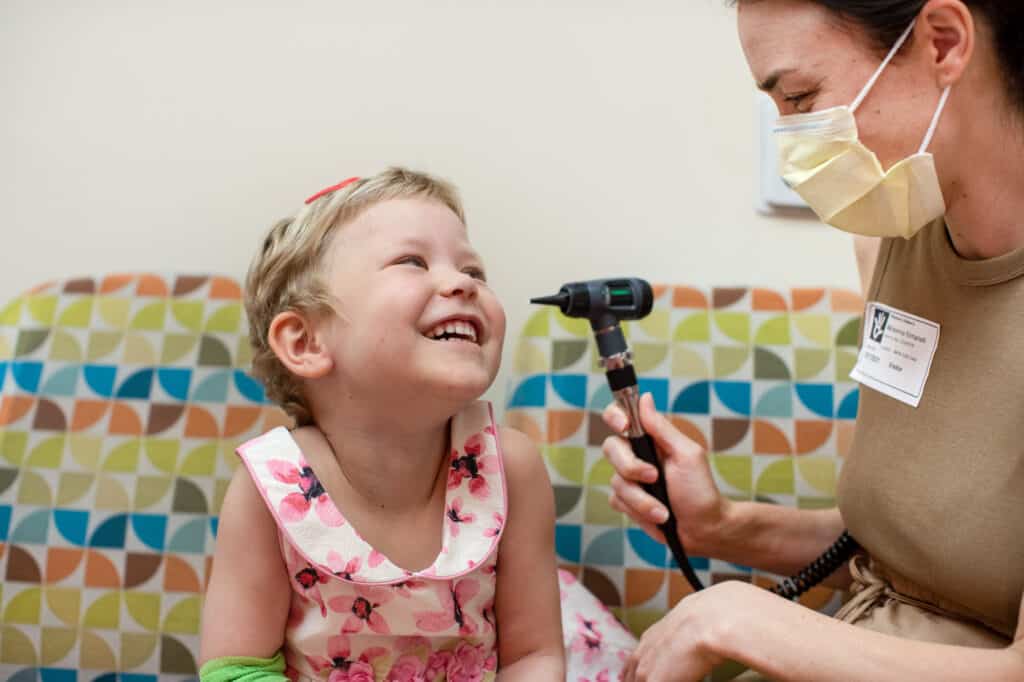
Cooper and McKenna joke around while they wait to see pediatric nurse practitioner Britt Olson. Twenty years ago, McKenna’s brother was treated for cancer at Phoenix Children’s. “I’m prepared to do this because I watched my mom experience what I’m going through today,” says McKenna. “My brother had a 40 percent prognosis, and he’s still alive today. We’re going to get through this.”
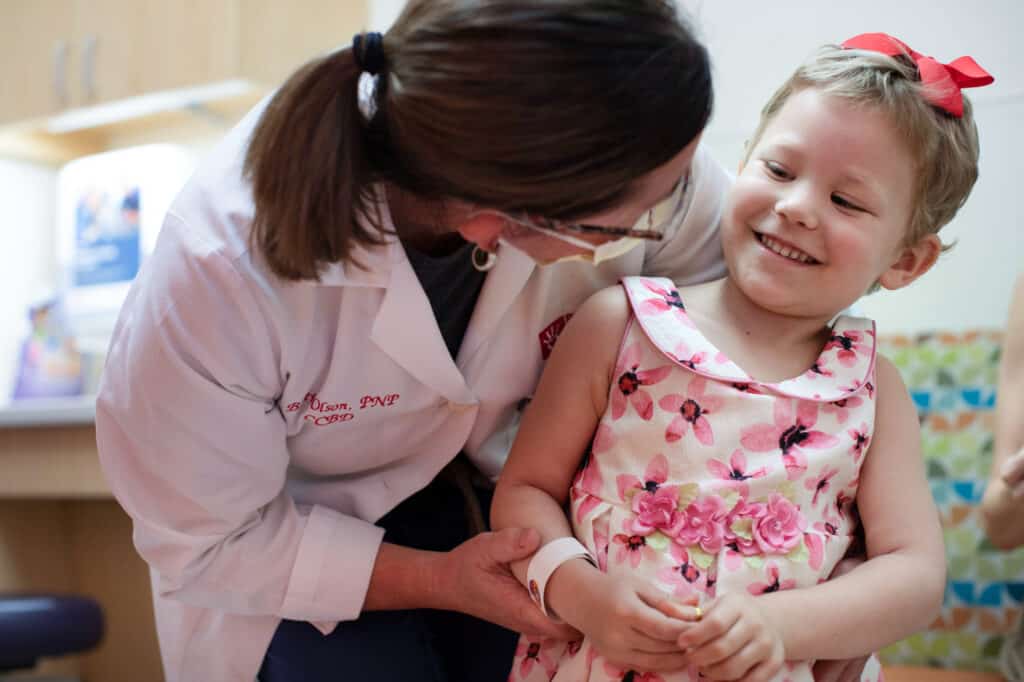
Britt visits with Cooper and McKenna. Then Britt examines Cooper and goes over her lab tests. Cooper receives an exam and bloodwork monthly, and IV chemo every three months. She takes quite a few medications at home every day.
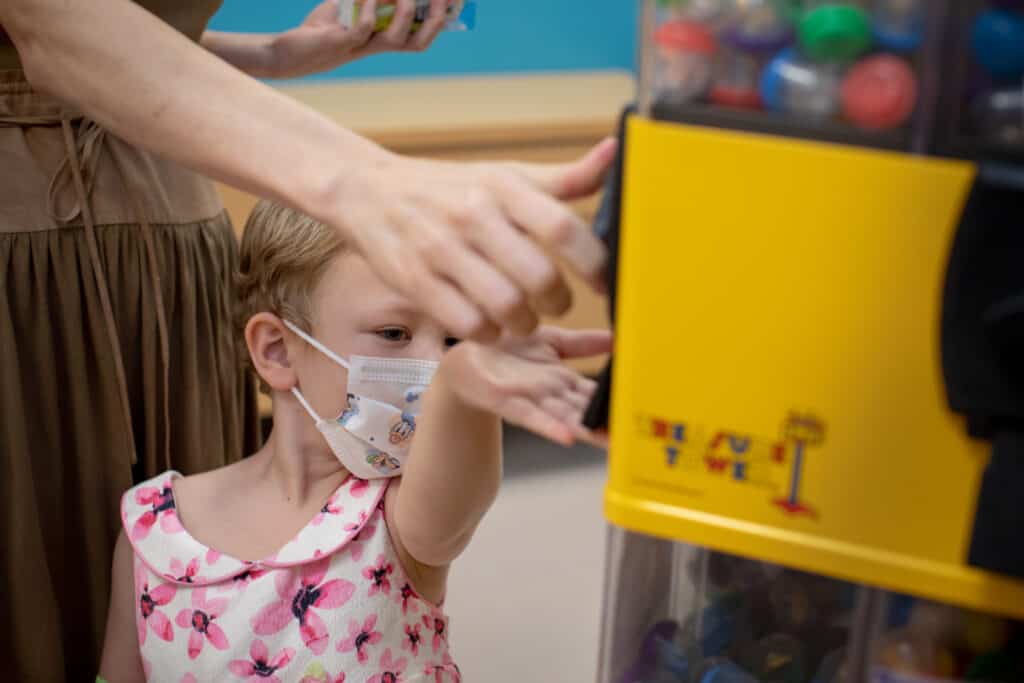
After her appointment, which takes about two hours, Cooper gets to have a prize from the Treasure Tower.

Now it’s time to head home and play!
Because of the world-class care she has received—and the generosity of the donors who support Phoenix Children's Cancer Center —Cooper's future looks bright.
Hundreds of children like Cooper come to Phoenix Children’s Children’s Center for Cancer and Blood
Disorders every year to receive the family-centered care we’re known for. Your support of CCBD allows us to provide the most advanced care with a compassionate touch.
If you have a story about how your life has been touched by Phoenix Children’s, we want to hear from you.

